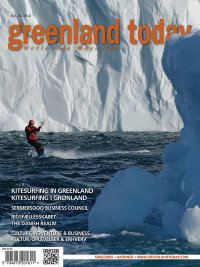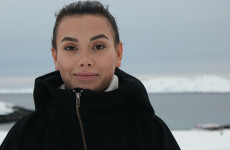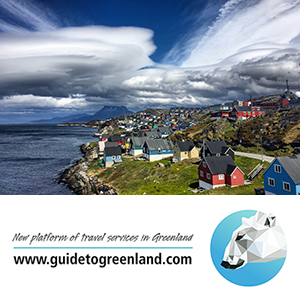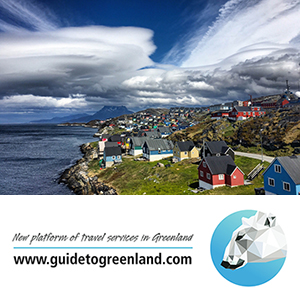
A new documentary series »The History of the Danish Realm« is being shown on TV this spring in Greenland, Denmark and the Faroe Islands. The series is also available to schools. The documentary was made by Martin Breum together with Jakob Gottschau and produced by Express-tv.
Text: Martin Breum, greenland today March 2016
In the spring of 2016, viewers in Greenland, Denmark and the Faroe Islands will get answers to a series of fundamental questions: Why do the three peoples stay together in the Danish Realm? Why is Greenland Danish – and not Norwegian or British? Why did the Greenlanders give up their old religion in favour of Christianity? And why do so many Greenlanders and Faroese think that Denmark has too much influence on their lives?
In six TV documentaries totalling three hours of TV, we have attempted to get to the core of more than three hundred years of old, common history. We wanted to produce an exciting, colourful and accurate narrative about a past that has formed the three nations into what they are today. The programmes will be shown on Greenlandic, Faroese and Danish TV in adapted language versions so everyone can understand. Authorities in the three countries will be instrumental in making the series available to schools and colleges.

Endless negotiation
The series will show how the relationship between Greenland and Denmark has always taken the form of sharp negotiation. It was already clear in 1721, when the Norwegian missionary Hans Egede started missionary work and colonizing Greenland, that Greenlanders carefully chose what they did or did not want, among the ideologies the colonists brought with them.
The Greenlandic hunters preferred to deal with the Dutch whalers and as associate professor Kirsten Thisted, expert in Greenlandic spiritual life, explains in one of our programmes, the Greenlanders could have just sailed away if they had not been so pre-occupied with the Danes: The hunters, the wives and the young Greenlanders chose after careful consideration to become Christian; they eagerly chose to learn reading and writing and they immediately used these new skills to criticize and complain. There are some delightful letters in the Greenlandic National Archive in Nuuk from disgruntled hunters from north and south who already in the 1700s and 1800s complained about bad wages, unfair trading and unreasonable administration.
In 1758, deacon Poul Greenlander delivered a long and sharp critique of civilization in a letter to one of Hans Egede’s sons: »Your people know that there is a God…and yet they live as though they have the right to be evil«, he wrote. In the middle of the 1800s, linguist and expert on Greenland Hinrich Rink got many Greenlanders to write down their old legends and the phenomenal artist Aron from Kangeq illustrated the legends, giving them new life. They emphasized the pride and courage of the hunters of Greenland.
In 1861, the first Greenlandic newspaper, Atuagagdliutit, was published in Greenlandic, speeding up the people’s understanding of themselves as a nation with a culture.
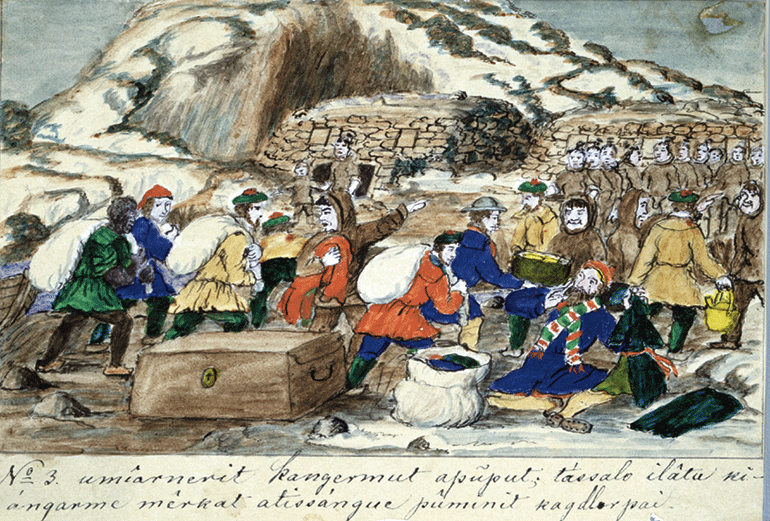
Danish weakness
Greenland, Iceland and the Faroe Islands were originally countries which paid tax to Norway: the Norwegian king collected the taxes. Later, Norway united with Denmark and the decisive moment came in 1814. Denmark was on the losing side in the great Napoleonic wars in Europe and the peace treaty forced Denmark to give all of Norway to the Swedish king.
As the great victor of the war, Great Britain had decisive influence and the North Atlantic islands could very well have become British or they could have followed Norway into the new, great Swedish Realm. But as professor of history Uffe Østergaard explains in our series, Great Britain had other interests. The British feared the high cost, if they took over responsibility for keeping Greenland, Iceland and the Faroe Islands supplied with food, clergymen and other necessities.
Neither did the British want Sweden to take over the islands and thereby become a rival in the North Atlantic region. It was there- fore convenient for Great Britain, that the bankrupted, war-weary Danish kingdom had responsibility for the three island communities. In the words of Uffe Østergaard: The Danish Realm is a product of weakness.

Denmark as a partner
At the start of the 1900s, Greenlandic intellectuals wrote the first books about a future, highly-developed Greenland in an equal partnership with Denmark and the impoverished fisherman Peter Gundel sharply criticized the discrimination to which Greenlanders were subjected. His outline for a novel was stopped because he got too close to named Danes in Greenland, but at the same time, Greenlandic politicians called for more influence and modernisation. The transition from hunting to fishing gave women a new, central role on the job market and in the economy: Society was undergoing rapid change.
During WWII, Greenland was largely out of Copenhagen’s range of influence: However, the Americans needed Greenland as a place stop over on the way to the war in Europe. The Americans built bases, among them the big base at Kangerlussuaq, which is still Greenland’s international airport. During WWII, Greenlanders sucked up modernity, goods from New York and all things international. Leaders eager for progress, like teacher Augo Lynge, formulated new demands for influence, collaboration and progress.
In 1953, following a change in Denmark’s constitution, the National Council in what was then Godthåb voted to become a part of modern Denmark. Today, it is disputed whether Greenland should have been permitted to vote on the change in the constitution at a referendum like the Danish voters.
Taking the long view, it is perhaps more pivotal, that the Greenlandic politicians in the National Council by all accounts imagined that equality before the law would also mean equality in a broader sense. When the equality failed to happen, it started a political movement, the effects of which are still evident today. Augo Lynge, who was otherwise very much in favour of the realm, warned already in 1957, after four years as a member of the Danish Folketing, that the relationship was still »skewed« and that the »master race mentality« still prevailed.
100 years an hour
During these six TV documentaries, we tell the history of the Faroe Islands, Greenland and Denmark at 100 years an hour. We have taken many discussions concerning what was important to include, to find out more about why the realm looks the way it does today.
For example, we found that the story of lawyer Alf Ross’s memorandum from 1952 should be included. Alf Ross, who was Denmark’s leading expert on international law, was asked to advise the Danish government, when the constitution was re-written and Greenland was made part of Denmark. Alf Ross noted that the new constitution should make it clear that Greenland – when the time was right – had the right to self-governance, i.e. an extensive degree of autonomy. This advice was very inopportune for the Danish government. It could give the politicians in Greenland ideas and that could create unnecessary commotion about the issue in the UN in New York. Denmark was interested in a smooth process – not in unnecessary discussions. Alf Ross was called before the Danish Prime Minister and the Minister of Foreign Affairs and after time to reconsider, he chose to retract his memorandum and write a new one which was less sharp.
In the autumn of 1952, when the Greenlandic politicians were to say yes or no as to whether Greenland should be included under the Danish constitution and therefore be part of Denmark, the Danish Chief Administrator who sat at the head of the table had been informed in detail of Alf Ross’s thoughts. But he had orders not to say a word to the Greenlandic members of the National Council. So they made what may have been the most important decision of their lives without knowing the thoughts of the country’s leading expert.
Why did we bring this story in our programmes? Would it have changed the vote of the National Council back in 1952, if the Greenlandic politicians had known of Alf Ross’s memorandum? Probably not.
In all probability, Greenlandic politicians in the 1950s were looking forward to Greenland becoming an integrated part of Denmark. Greenlanders became Danish citizens and many hoped for better access to education and for progress and collaboration about the development of Greenland with Denmark on a more equal footing. But Alf Ross’s memorandum is still important: It illustrates how the Danish state managed its own interests in a very direct manner and still thought it was permissible to withhold essential information from Greenland’s elected representatives.
Denmark’s interests
Our programmes continue right up until the introduction of Self Governance in Greenland in 2009. We get an idea of what Denmark’s fundamental motive has been during all the negotiations since WWII.
It must be remembered here, that just 50 years ago Denmark reigned supreme over all of Greenland and that Denmark had access to Greenland’s wealth: Fish, oil, gold, uranium, lead and much more and at the same time had a free hand to enter into defence agreements with the USA and NATO with regard to Thule Air Base and Greenland.
Today, Greenland has selfgovernance and it has the right to all the fish in the sea and all the mineral resources in its underground. Greenlanders are recognized as a people under international law and they therefore have the right to gain independence from Denmark should they want this one day.
Why have changing Danish governments consented to such a development? In our final programme, we show that for Denmark, the selfgovernance law of 2009 meant that Greenland could remain part of the Danish realm, at least for some years to come. Chief editor Bo Lidegaard, who often comments on Greenland’s modern history, puts it this way: »Denmark’s interest in Greenland and in the Danish Realm is enormous. If you talk about security policy, if you talk about economy, if you talk about climate, if you talk about the future, and about fresh water and about anything, about shipping, about international trade, then Greenland is extremely important for Denmark.«


